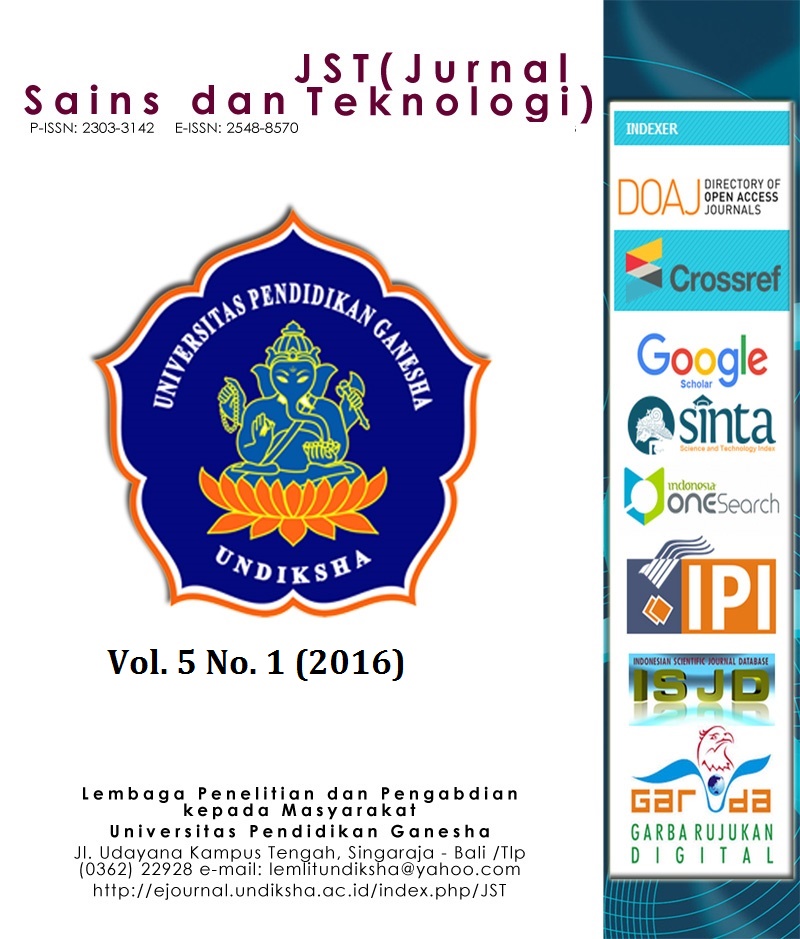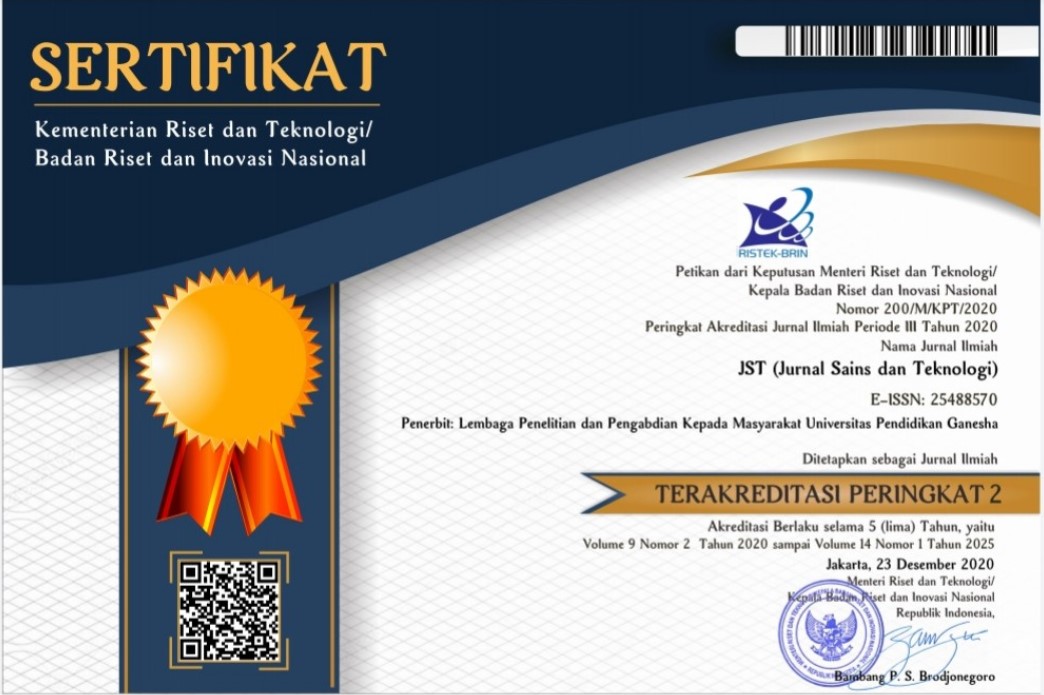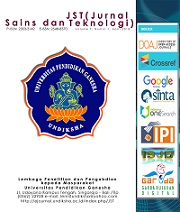PENGEMBANGAN TES BAKAT TERPADU ONLINE
DOI:
https://doi.org/10.23887/jstundiksha.v5i1.8271Abstract
Abstrak Pengembangan tes bakat online didasari ide untuk memperluas otomasi layanan pendidikan, melengkapi e-learning yang sudah berkembang dengan baik untuk otomasi pembelajaran. Kelebihan tes bakat online yang dikembangkan adalah dapat digunakan setiap saat, dan tidak terlalu terikat tempat, serta tidak memerlukan petugas yang memahami evaluasi. Selain itu, tes bakat online dapat menyajikan variasi tes yang berbeda setiap kali diakses, serta dapat memberikan informasi hasil tes secara otomatis langsung setelah peserta tes memvalidasi jawabannya. Kata kunci: tes bakat online, otomasi layanan pendidikan Abstract Development of online aptitude test based on idea of widening automation on educational service, completing existing various e-learning model for instructional automation. There are some advantages of online aptitude test. It can be used anytime and anywhere by everyone. Furthermore, it can present various package of test every time it is accessed and automatically gives score and feedback immediately after tester finish answer the test. Keywords: online aptitude test, automation of educational serviceDownloads
How to Cite
Candiasa, I. M. (2016). PENGEMBANGAN TES BAKAT TERPADU ONLINE. JST (Jurnal Sains Dan Teknologi), 5(1). https://doi.org/10.23887/jstundiksha.v5i1.8271
Issue
Section
Articles
License
Authors who publish with the Jurnal Sains dan Teknologi (JST) agree to the following terms:
- Authors retain copyright and grant the journal the right of first publication with the work simultaneously licensed under a Creative Commons Attribution License (CC BY-SA 4.0) that allows others to share the work with an acknowledgment of the work's authorship and initial publication in this journal.
- Authors are able to enter into separate, additional contractual arrangements for the non-exclusive distribution of the journal's published version of the work (e.g., post it to an institutional repository or publish it in a book), with an acknowledgment of its initial publication in this journal.
- Authors are permitted and encouraged to post their work online (e.g., in institutional repositories or on their website) prior to and during the submission process, as it can lead to productive exchanges, as well as earlier and greater citation of published work. (See The Effect of Open Access)
















